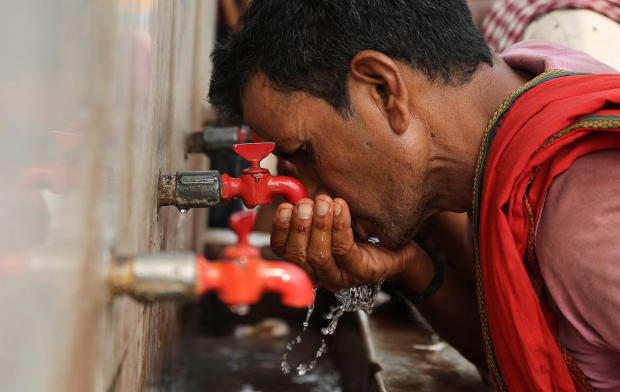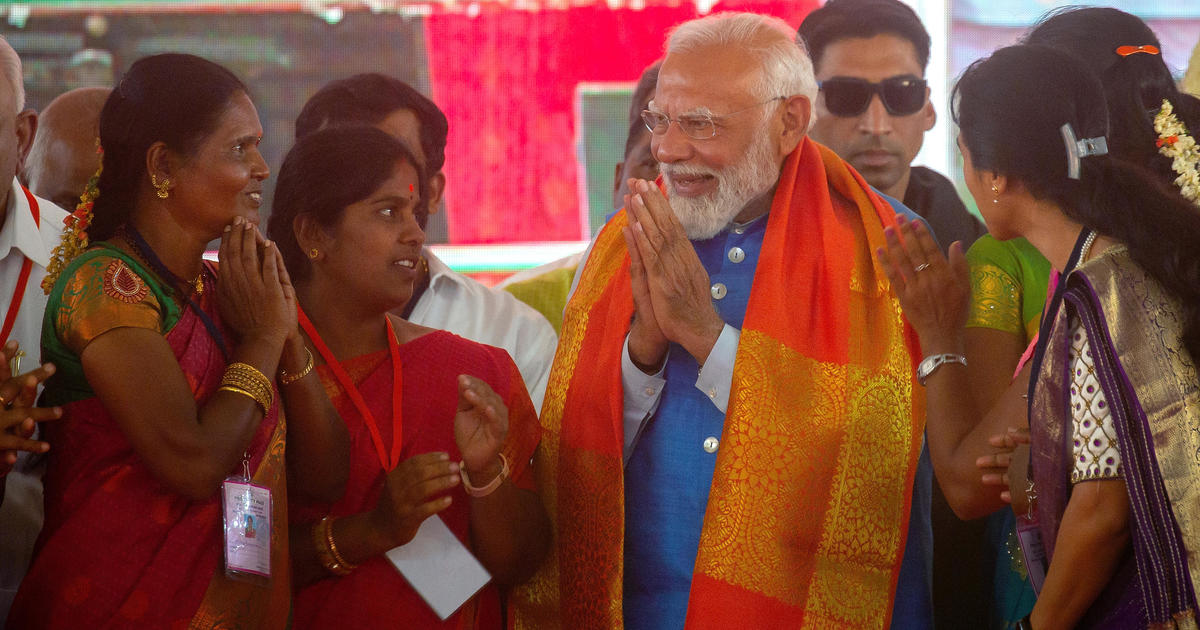Severe heat wave kills dozens in India and Pakistan in a "snapshot" of what's to come from climate change, expert says
New Delhi — Hundreds of millions of people in large parts of India and Pakistan have been exposed to a deadly heat wave for nearly two months. The high temperatures began scorching the two countries in mid-March, much earlier than the usual peak summer month of June, breaking records and catching people and governments unprepared.
At least 25 people have been killed in India, and more than 65 deaths have been reported in Pakistan, but the true numbers are expected to be higher.
Northwest and central India faced its hottest April in 122 years with temperatures crossing 100 degrees Fahrenheit in most parts. India's capital of New Delhi saw temperatures topping 110 F for several days last month. In Pakistan, temperatures in Jacobabad and Nawabshah touched 120 F at the end of April.
The Indian subcontinent faces heat waves every summer, but this year's has been different — not for the record-breaking temperatures though, experts say.
"It's unique for three reasons: It arrived very early, covered a massive area in the two countries and stayed on for long duration … this is very unusual," Vimal Mishra, a climate scientist at the Indian Institute of Technology, Gandhinagar, told CBS News.
The nights in many parts of the two countries have not come as a relief either as the low temperatures have not dipped below 86 F. Experts say this can prove deadly as the body gets no time to recover from daytime heat.
The scorching temperatures have forced some local governments in the two countries to close schools and advise people to stay indoors. But for many millions of farmers, construction workers, day laborers and street hawkers who work outdoors and live from hand to mouth, staying indoors is a luxury they can't afford.
The heat wave is also expected to affect the wheat crop in India, the world's second-biggest producer. The country has seen record harvests in the last five years.
The demand for electricity has soared, leading to a coal shortage for power plants and subsequent outages for several hours a day in many parts of the country. The country has canceled hundreds of passenger trains to make way for more cargo trains to transport coal to the plants as stocks ran low.
Nearly 70% of India's electricity comes from coal-fired thermal power plants. Though the country has made significant strides toward clean energy, quitting coal is going to take a long time.
Heat waves affected by climate change
A recent scientific report published in February said human activity caused heat waves in India to happen more often and to be more intense during the 20th century.
"There is no doubt that climate change is playing a role here … although we will have to look at other factors too," said Mishra, the climate scientist.
Experts say India and Pakistan will see more severe heat waves in the next few decades unless more rigorous steps are taken to stop climate change globally.
"This is just a snapshot of what we will see in the next 20 to 30 years," Mishra told CBS News.
"There is no doubt that in future the heat waves will occur more often, last longer and cover larger parts of the subcontinent … affecting water availability, agriculture, businesses and energy demand," he said.
According to an Indian government report by the Ministry of Earth Sciences, the average frequency of summer heat waves will increase to about 2.5 events per season by the mid-21st century with a further rise to about 3 events by the end of the century. The average duration of heat waves is also expected to increase to 18 days per season toward the end of the century.
The U.N. Intergovernmental Panel on Climate Change has predicted a similar scenario for India. Consulting company McKinsey & Company estimates that by the end of the decade, the country could lose $250 billion or 4.5% of its gross domestic product to work hours lost to heat waves.




